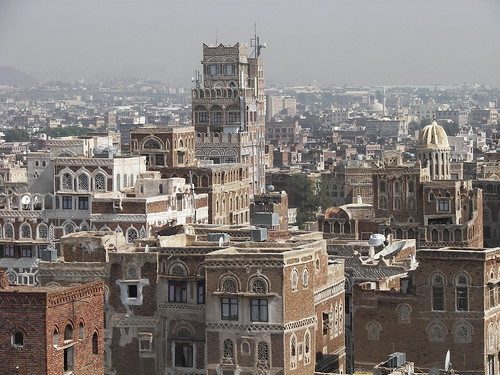Edited by June Polewko

The failed attempt against a commercial airliner near Detroit has directed the U.S.’s attention in its fight against terrorism toward a country that was, until now — though not on the sidelines — discreetly in the background: Yemen. Weaknesses in the government’s structural organization, and the fact that the majority of its population is Muslim, make Yemen an ideal candidate for al-Qaida to incorporate into the central progression of its strategy. The jihadists claim that some of their more spectacular attacks not only cause damage to the United States and its allies, but also significantly contribute to the destabilization of certain regions where al-Qaida can later emerge stronger. This is exactly the case in Yemen and is certainly the case in Somalia as well.
Al-Qaida’s chosen moment for the upsurge of its terrorist offensive is not accidental. The withdrawal of American troops from Iraq is approaching and Obama was obliged to strengthen the military stake in Afghanistan. Now is the time when the jihadists are trying to demonstrate that, in essence, there are no policy differences between the White House’s current administration and the one during Bush’s era. Specifically, the jihadists are encouraging responses from the United States that would allow for stable support of the jihad ideology. What is most troublesome is that Obama has little room to maneuver in counteracting the terrorists’ plans. And statements, such as those from former Vice President Dick Cheney — in which he accuses Obama of not believing that the United States is engaged in a war against terrorism — do not facilitate the president’s difficult task.
The main dilemma for the Obama administration is not to pass judgment regarding whether the terrorist threat has diminished, but rather, determining if the most adequate means of combating the terrorists is accomplished by engaging in another war. The biggest mistake the White House could commit is to involve U.S. forces in Yemen, further risking a negative outcome to the war in Afghanistan and offering an additional theater for the jihadists. As the Iraq and Afghanistan experiences have demonstrated, the United States has no difficulty in obtaining conventional military victories; the challenge lies in sustaining victories over time and converting them into an effective tool against terrorism.
Obama gave instructions to close the U.S. Embassy in the Yemeni capital, San‘a, as did British Prime Minister Gordon Brown. Immediately following the attack on the commercial plane, Spain announced a similar closing of its embassy, but later clarified that the restrictions only applied to the public and that diplomatic delegations were still allowed entry. It is a difficult decision, in which the official in charge of making the decision should have the support of his government. But the possibility of following in the footsteps of Washington and London should not be discarded, since the risks to Spanish interests, like those of other European countries, will increase as the risks for our main allies increase.

Leave a Reply
You must be logged in to post a comment.